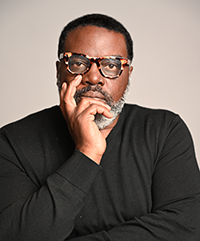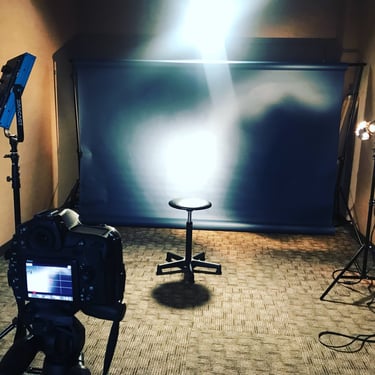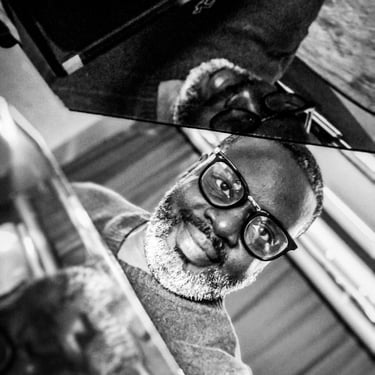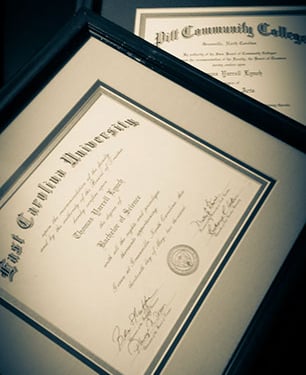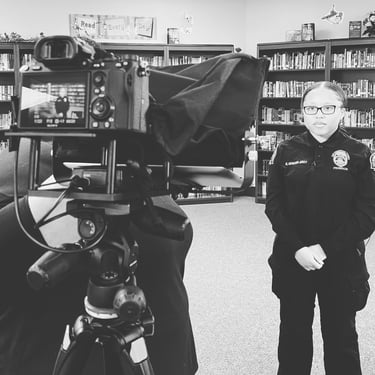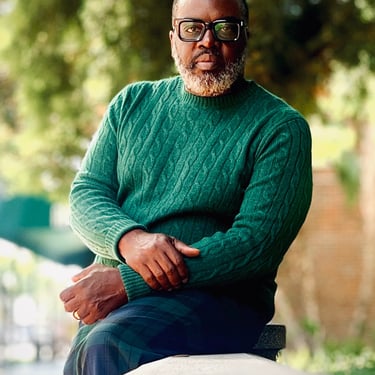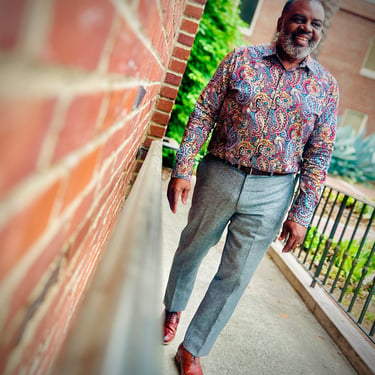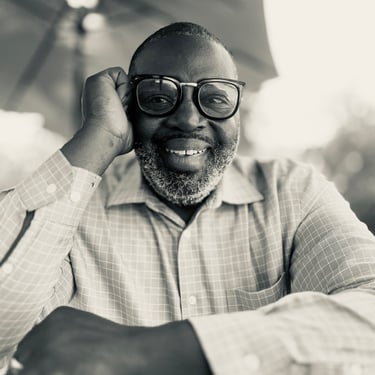
Black Bubbly - How Edward F. Boyd Revolutionized Pepsi
The Untold Story of Marketing's Double-Edged Sword
AFRICAN AMERICAN COMMUNICATORS MARKETING
Thomas Y. Lynch
10/12/20255 min read
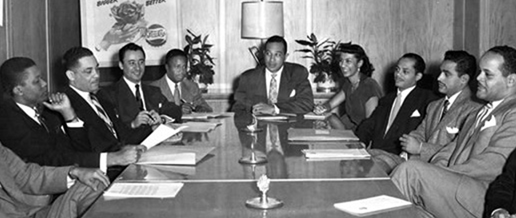

A meeting of the team that was to capture the “Negro market” on Pepsi’ behalf.
We all have a preference, my current Pastor Henry Pigee, likes Coke, whereas my Uncle Mack Teel is a Pepsi guy. I personally prefer Coke. There is nothing like crispy cold Coke sliding down your throat on a humid Carolina afternoon, and the slight burn of carbonation as you finish. It was all innocent, I was just a boy indulging in the simple pleasures of life - right?
Of course not, this is a communications blog and there is often a twist behind simple pleasures - hence this article. Marketing is one of the highest forms of communication, a marketer has one job and one essential metric - to sell products. From a comms perspective that should make the task simple, but as you know there is a complexity in navigating the human psyche. Tapping into someone’s emotion, lure them over to your side and open up their wallets requires a strategy. Imagine adding a layer of being an African American and navigating corporate racism and operating during the Jim Crow era. Then to top it off, Pepsi is just ain’t better than Coke (lol).
In this blog I will explore how Edward F. Boyd, conquered all of the obstacles before him with sound marketing and communications principles. But how did the result benefit Black America? Let dive in!
In the 1940s, while Coca-Cola actively excluded Black Americans from their advertising and perpetuated harmful stereotypes, one man at Pepsi-Cola saw an untapped market—and changed the face of American marketing forever. Edward F. Boyd, a trailblazing Black executive, didn't just sell soda; he rewrote the rules of consumer engagement. But let's be clear: to corporate America this wasn't about liberation. It was about leveraging the Black dollar.
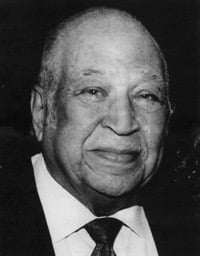

“We’d been caricatured and stereotyped,” said Edward F. Boyd, who came up with the idea for the ad campaign. “The advertisement represented us as normal Americans.”
- Edward F. Boyd
1. Creating the "Negro Markets Department": Visibility as Strategy
Core Comm Principle: Create a solid team.
In 1947, Boyd established Pepsi's "Negro Markets Department," becoming one of the first major corporations to specifically target Black consumers with dedicated marketing resources. This was revolutionary—not because Pepsi cared about Black lives, but because they recognized Black purchasing power.
While Coca-Cola was busy featuring only white families in their Norman Rockwell like visual advertisements and using racist imagery that demonized Black people, Boyd hired an all-Black sales team. He understood that representation mattered—maybe for dignity's sake, but definitely for profit margins. These salesmen went into Black neighborhoods, churches, and community centers, making Pepsi a household name where Coke refused to tread.
The Reality Check: From Pepsi’s perspective Boyd's team wasn't there to uplift communities. They were there to extract wealth from them.
2. Advertising in Black Media: Dollars Over Dignity?
Core Comm Principle: Know your audience.
Boyd pioneered advertising in Black newspapers and magazines—publications that white-owned companies had systematically ignored. He placed ads in The Pittsburgh Courier, Ebony, and Jet, featuring well-dressed, aspirational Black families enjoying Pepsi.
This was groundbreaking because it showed Black Americans as consumers worthy of marketing attention. Coca-Cola, meanwhile, continued to either ignore Black consumers entirely or depict them through degrading caricatures when they appeared at all.
But here's the uncomfortable truth: Boyd's strategy wasn't about respect. It was about market penetration. Pepsi didn't support Black civil rights movements. They didn't fund Black schools or fight segregation. They simply wanted Black families to choose Pepsi over Coke at the checkout counter.
The Bottom Line: Representation in advertising doesn't equal corporate solidarity. It equals sales projections.
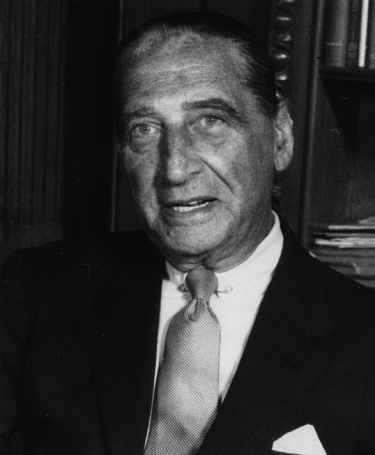

“We don’t want to be known as the nigger drink,”
-Walter S. Mack, Pepsi Executive
3. Leveraging Black Influencers and Community Leaders
Core Comm Principle: Expand your reach with cultural influencers to gain credibility within their demographic.
Boyd understood the power of community trust long before "influencer marketing" became a buzzword. He partnered with Black celebrities, athletes, and community leaders to endorse Pepsi, making the brand synonymous with Black success and aspiration.
While Coke maintained its whites-only advertising approach and actively contributed to the systemic marginalization of Black Americans through its marketing choices, Pepsi appeared progressive by comparison.
Neither company showed up for Black communities when it mattered. During the Civil Rights Movement, when Black Americans were fighting for basic human rights, Pepsi's support was conspicuously absent. They wanted Black consumers' money on Monday but wouldn't stand with them at the lunch counter on Tuesday.
The Legacy: Profit Without Progress
Edward F. Boyd's marketing innovations were undeniably brilliant. Boyd infiltrated the corporate world and was a pioneer for today’s Black businessmen. He forced corporate America to recognize that Black consumers existed and had economic power. He created a blueprint that every modern diversity marketing campaign still follows.
But two things can be true:
1. Boyd's work gave Black Americans visibility in mainstream advertising when they were otherwise erased or demonized
2. This visibility was transactional, not transformational—designed to capture market share, not to support Black humanization.
Coca-Cola's explicit racism in advertising and Pepsi's calculated inclusion were two sides of the same coin: corporate indifference to Black humanity, coupled with intense interest in Black spending power.
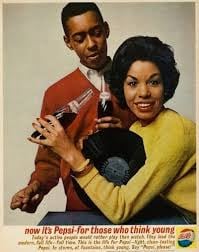

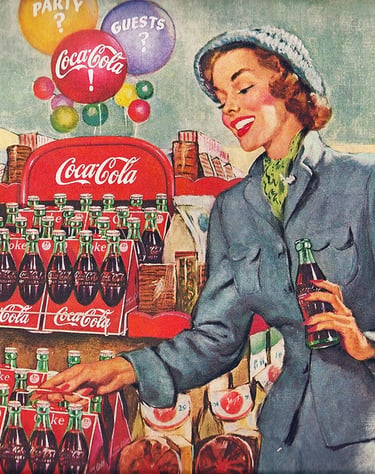

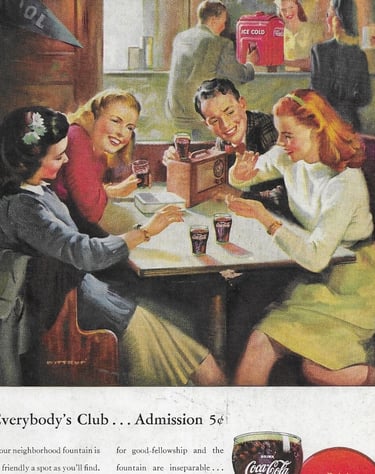

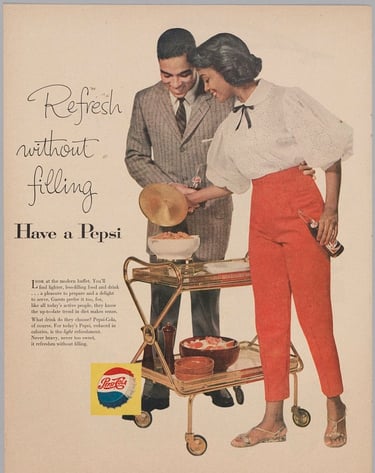

Coke vs. Pepsi advertising products circa 1940s
What This Means for Modern Consumers
Today's brands have learned Boyd's lessons well. They plaster rainbow flags during Pride Month and post black squares for #BlackLivesMatter—but often without substantive policy changes, equitable hiring practices, or genuine community investment. We can look to the Boycott of Target and Walmart, who blatantly went along with the Trump administration’s attack on perceived Black initiatives.
The question remains the same as it was in 1947: Are we being seen, or are we being sold to?
Edward F. Boyd revolutionized marketing by proving that Black consumers mattered. But he couldn't make Pepsi—or any corporation—care about Black lives. That's a revolution still waiting to happen.
Thomas Y.Lynch
One of my favorite influencers @ashleythebarroness. Her posts are about history & headlines. Her work is decoded, unfiltered, and way more interesting than school. Follow her!
“How well we communicate is not determined by how well we say things but how well we are understood.”
